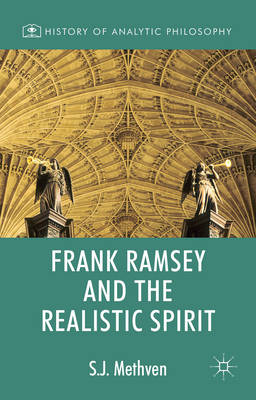History of Analytic Philosophy
1 total work
This volume tracks Ramsey's philosophical development over the course of his short life, arguing that there runs throughout Ramsey's work a methodological commitment to philosophising in what he called 'the realistic spirit', a commitment which is only given that name by him in 1929, the final year of his life. This commitment is characterised by the rejection of various (though not all) forms of realism, not as false, but as nonsensical. A large part of the book is concerned with characterising this notion, and the attendant conception of philosophical enquiry, in more detail. Reading Ramsey's work with the realistic spirit in mind allows one to see that the philosophical puzzles with which Ramsey concerned himself relate almost entirely to his working through some commitments of Wittgenstein's Tractatus Logico-Philosophicus that he took to be distinctly unrealistic (in his sense), entailing as they do a number of realist (not realistic) commitments. It also allows us to see the degree to which that work was concerned with augmenting the theory of the Tractatus in order to improve it. Finally, it makes clearer the influence that Ramsey had on Wittgenstein's later work, and thus also on much of the philosophy of the late-20th century.
